Huge task ahead as primary education now up to class VIII
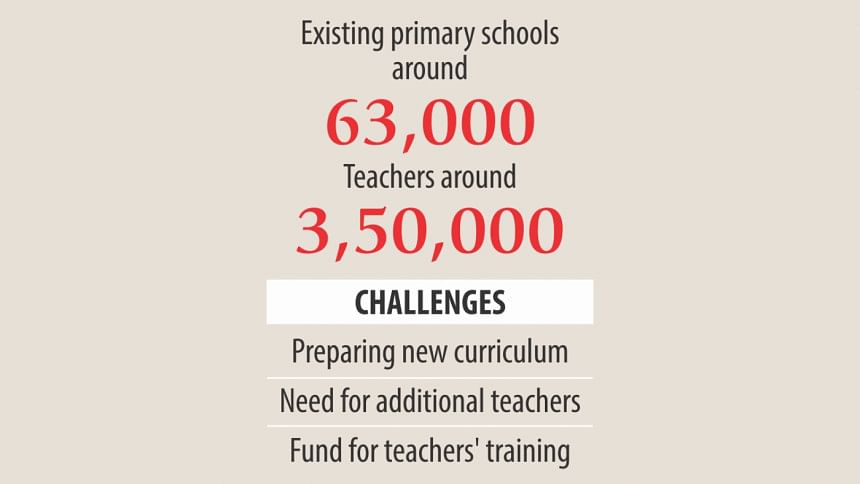
From now on, primary education in the country will be up to class-VIII.
The government made the decision yesterday to extend the level of primary education from class-V in light of the National Education Policy 2010.
All the educational activities from class-I to VIII will now be supervised by the primary and mass education ministry. Previously, the academic activities of class-VI to VIII were under the jurisdiction of the education ministry.
The decision came at a meeting on implementation of the national education policy. Educationists and teachers attended the meeting at the education ministry at the secretariat.
However, implementing the decision is going to be a huge challenge for the government as it would require big funds for the appointment of additional teachers, their training and preparation of a new curriculum, said education ministry officials.
With the elevation of primary level, the level of secondary education would be from class-IX to XII.
The meeting also decided that the academic activities up to class-VIII will be conduced using the existing infrastructure.
“The government may not open the three extra classes in the primary schools soon,” said an official wishing anonymity.
The education ministry would not give any new permission to any school for starting academic activities of classes-VI to VIII. The primary education ministry would do that, said officials.
Talking to The Daily Star, Education Minister Nurul Islam Nahid said extending the level of primary education was the biggest decision in the history of the country's education.
Education up to class-VIII will be the basic education for Bangladeshis, he added. “We want to ensure education for all up to this level so that the students can acquire skills and competence of a certain level.”
The move would reduce the risk of drop out, the minister noted.
He said the primary education ministry would decide on whether it would hold primary terminal exams for class-V students.
Briefing reporters after the meeting, Primary and Mass Education Minister Mostafizur Rahman said they started working to this end and would be able to complete all the administrative formalities in June.
He hoped that the decision would be fully implemented by the end of 2018.
Nahid said the two ministries needed to complete many academic and administrative formalities to execute the decision as there were complexities in the education system.
For example, he said some schools impart education from class-I to X while others from class-I to V and class-VI to XII.
Besides, the government has to prepare a new curriculum for the primary level, create new posts of teachers and allocate additional funds, Nahid stated.
The primary education ministry would sit to form committees to devise the new curriculum and settle the issues related to different schools, he told this correspondent.
“We would give an all-out support to the primary education ministry to execute the decision.”
The primary education ministry will send a summary of its plan to the prime minister and then to the cabinet for approval, said Nahid.
Currently, around 63,000 government primary schools across the country provide education up to class-V while around 19,000 secondary schools up to class-X.
Of the 19,000 institutions, 2,381 junior secondary schools provide education from class VI to VIII. These schools will now go under the jurisdiction of the primary education ministry, said sources.
At the meeting yesterday, Prof Siddiqur Rahman, a former teacher of the Institute of Education and Research of Dhaka University, stressed the need for preparing new syllabuses for class-VI, VII and VIII considering those under the primary level, said meeting sources.
Eminent educationist Prof Muhammed Zafar Iqbal sent a letter to the ministry as he could not join the meeting. In the letter, he criticised the primary terminal exams saying that it brought a disaster in the education system, with private coaching taking a worse turn.
Asked about it, Mostafizur Rahman said they would make a decision on the issue later.
The primary terminal exams were introduced in 2010 as per the cabinet's decision and its approval is needed to abolish the exams, he added.

 For all latest news, follow The Daily Star's Google News channel.
For all latest news, follow The Daily Star's Google News channel. 

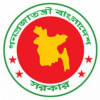

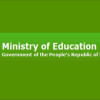
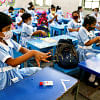


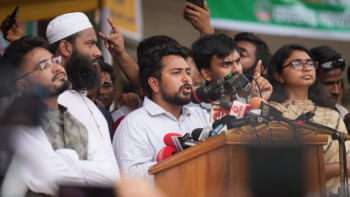
Comments